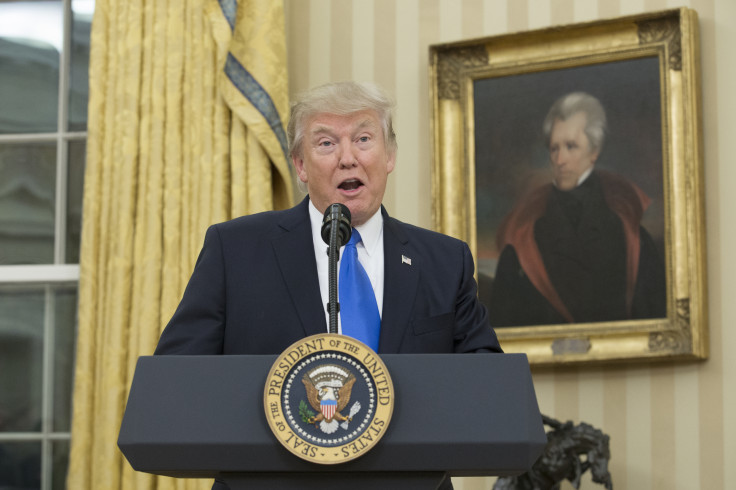
President Donald Trump is targeting courts across the country as judges block several of his moves, including granting Elon Musk's Department of Government Efficiency (DOGE) the permission to access Treasury Department records. However, their stance isn't unprecedented, with another president seeking to go after courts almost two centuries ago.
A federal judge made the decision early Saturday to block Musk from accessing the Department of the Treasury's records, while others blocked Trump's push to end birthright citizenship, among other rulings. The decisions have led to an avalanche of MAGA fanatics to question the power and authority of the judicial branch of government.
"A corrupt judge protecting corruption. He needs to be impeached NOW!" Musk, who has been tasked to cut waste across the federal government, posted on X after one of the rulings.
Vice President JD Vance quickly followed suit, suggesting that the executive branch should have the ultimate say in legal decisions. On Sunday, the vice president said "if a judge tried to tell a general how to conduct a military operation, that would be illegal."
"If a judge tried to command the attorney general in how to use her discretion as a prosecutor, that's also illegal. Judges aren't allowed to control the executive's legitimate power," Vance added.
The White House and its allies questioning the legitimacy of courts is not new. In fact, President Andrew Jackson made consistent efforts to do the same in the 1800s, pushing executive powers to the limits. His moves, which have often been celebrated by Trump himself, would dramatically change the way the government works.
Who Was Andrew Jackson?
Andrew Jackson was the seventh president of the U.S. (1829-37). He is often credited with being the first to gain office by a direct appeal to the mass of voters. He also helped establish the Democratic Party as a major political force, advocating for the "common man" and expanding White male suffrage. His presidency also emphasized democratic participation and the power of the White "common man" in American politics, a philosophy that came to be known as Jacksonian Democracy.
Jackson remains a highly controversial figure in American history, admired for his populism but criticized for his harsh policies toward Native Americans— which led to the forced removal of Native American tribes from their lands— and his strong-handed approach to governance.
One of his most controversial moves is the Indian Removal Act of 1830, in which the president wanted to clear newly acquired territories of the Native Americans who lived westward so that white settlers could claim the land as their own.
The Act resulted in the forced displacement of nearly 50,000 Native Americans and opened up millions of acres of their ancestral land. That decision alone led to the deaths of nearly 4,000 Cherokee people due to exposure, starvation and disease during the forced march.
But perhaps most relevant at the moment is his defiance of the U.S. Supreme Court in Worcester v. Georgia (1832). The case centered on Georgia's law that sought to remove the Cherokee people from their land despite existing federal treaties recognizing Cherokee sovereignty. Under Chief Justice John Marshall, SCOTUS stated that Georgia had no legal authority over Cherokee lands, siding with the Native American tribe.
However, Jackson ignored the ruling, repeating the phrase "John Marshall has made his decision; now let him enforce it." Hence, Georgia continued removing Native Americans from their lands, which eventually led to the Indian Removal Act being fully implemented.
What Does Trump Think of Jackson?
Trump has not been shy of celebrating Jackson now that he is back in the White House. The portrait of the seventh president is now back in the Oval Office.
"Trump identifies with Jackson on many levels," Maurizio Valsania, Professor of American History at the University of Turin wrote in The Conversation. "As a man and a leader, he likes the brash, confrontational, hypermasculine, lionlike attitude that characterized the seventh president. Jackson pushed executive power to the limits, just like Trump tries to do."
They also bear a resemblance. For one, both presidents valued personal loyalty and devotion as their top priorities, taking disagreements personally and insisting on complete obedience from their subordinates. They also had an army of loyalists ready to serve at his interest. For Trump, that is his family and Musk. For Jackson, it was his nephew and his wife, as well as his friends from his home in Tennessee.
© 2025 Latin Times. All rights reserved. Do not reproduce without permission.




